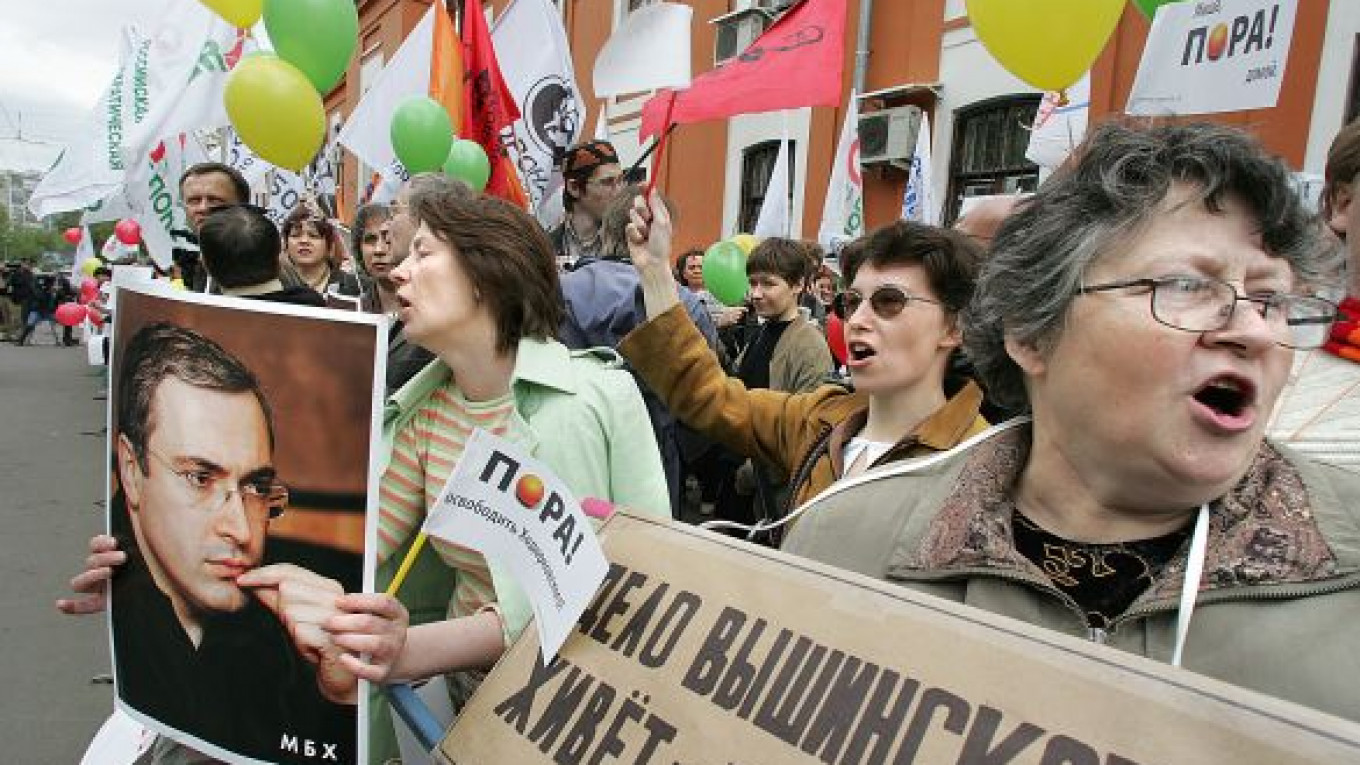Readings of extracts from Mikhail Khodorkovsky's prison writings were held Friday around the world as a part of a series of solidarity events coinciding with the 10-year anniversary of his arrest.
A human rights group and the U.S. government also marked the date by issuing statements condemning his jailing.
Former oil tycoon and Yukos head Khodorkovsky was arrested on Oct. 25, 2003, on fraud and tax evasion charges and sentenced to nine years in prison in 2005 together with his business partner, Platon Lebedev. A second case followed in 2010 that saw the pair convicted of stealing oil from Yukos and laundering the proceeds. They are set to be freed next year.
Khodorkovsky's punishment has been seen by many as a reprisal for challenging President Vladimir Putin's authority, with Amnesty International recognizing Khodorkovsky and Lebedev as prisoners of conscience. On Friday, the human rights group called for Khodorkovsky's immediate release in a statement.
The U.S. Department of State also issued a statement reiterating its concern about "selective prosecution, politically motivated investigation, and lack of respect for due process rights" in the case of Khodorkovsky and Lebedev.
The readings of Khodorkovsky's works were organized by the Berlin International Literature Festival and took place in Berlin, Paris, Moscow and other cities, with more than 80 international writers participating, including Nobel literature laureates Herta MЯller, Elfriede Jelinek, Mario Vargas Llosa and John M. Coetzee. In Moscow, the event was held at the Sakharov Center.
During his incarceration, Khodorkovsky has published two books, as well as articles and letters on political issues, his correspondence with writers Lyudmila Ulitskaya and Boris Akunin, and a number of statements accusing the authorities of botching foreign and economic policy and persecuting activists.
Khodorkovsky has been awarded several prizes for his work in the fields of literature and journalism and prizes for his involvement in human rights activity.
The solidarity events, including exhibitions, talks and performances, have been held throughout October in Britain, the U.S., and Estonia.
Material from The Associated Press is included in this report.
A Message from The Moscow Times:
Dear readers,
We are facing unprecedented challenges. Russia's Prosecutor General's Office has designated The Moscow Times as an "undesirable" organization, criminalizing our work and putting our staff at risk of prosecution. This follows our earlier unjust labeling as a "foreign agent."
These actions are direct attempts to silence independent journalism in Russia. The authorities claim our work "discredits the decisions of the Russian leadership." We see things differently: we strive to provide accurate, unbiased reporting on Russia.
We, the journalists of The Moscow Times, refuse to be silenced. But to continue our work, we need your help.
Your support, no matter how small, makes a world of difference. If you can, please support us monthly starting from just $2. It's quick to set up, and every contribution makes a significant impact.
By supporting The Moscow Times, you're defending open, independent journalism in the face of repression. Thank you for standing with us.
Remind me later.






